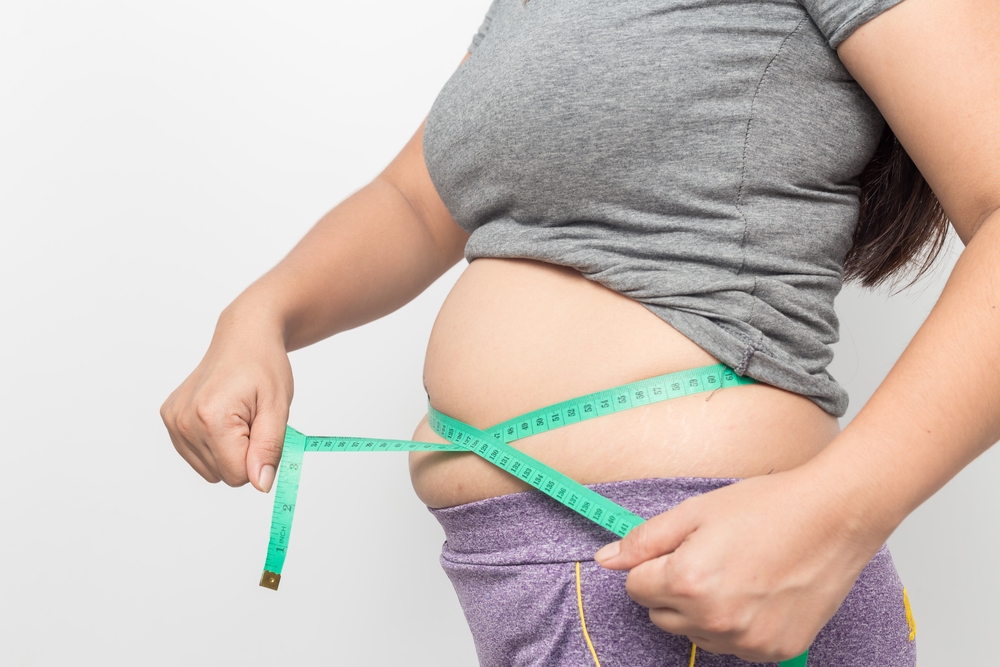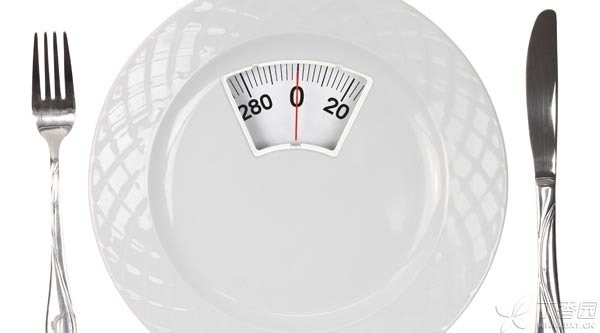
Some women in their 40s and 50s obviously don’t eat more, but their weight is increasing year by year, especially their belly fat is obviously increasing. In my mother’s words, it is simply [drinking water makes them fat.]
Why does menopause suddenly get fat? Should how scientifically control his weight?
Is what climacteric obese?
Menopause is a transitional period in which women’s fertility is continuously lost. Women in this period are prone to obesity to varying degrees due to relatively stable life, reduced family burden, endocrine changes and other reasons.
In general obesity, fat is usually evenly distributed throughout the body. In climacteric obesity, fat from buttocks is often redistributed to the abdomen, increasing the fat around the abdomen, thus causing women’s bodies to change from pear-shaped to apple-shaped (central obesity).
The study found that after the last menstrual cycle, women’s waist circumference will change significantly. At present, waist circumference is recognized as the simplest and most practical indicator to measure the degree of fat accumulation in the abdomen (i.e. Central obesity).
Judgment criteria (China): male ≥ 85cm and female ≥ 80cm are the limits of abdominal fat accumulation.
In the United States, the number of people who are obese in the abdomen is almost twice that of those who are obese in the whole body. The survey found that in 2008, 65.5% of women aged 40-59 in the United States were obese in the abdomen, and 73.8% of women over 60 years old. Another survey shows that in some big cities in China, the overweight rate of middle-aged and elderly women is as high as 40%.
Why is menopause prone to obesity?
1. Age
Studies have shown that climacteric women’s muscle content gradually decreases, their basic metabolic level decreases, and their calorie consumption decreases. If they do not reduce food intake or increase physical activity accordingly, they will easily get fat due to excess calories.
2. Decrease of estrogen secretion
Menopausal women’s estrogen secretion decreases due to ovarian function decline.
On the one hand, estrogen may affect fat metabolism by reducing the amount of neuropeptides and inhibiting their effects. However, lack of estrogen can promote the accumulation of fat in the central abdomen.
On the other hand, estrogen’s inhibition of pituitary gland is weakened, resulting in hyperfunction of hypothalamus and pituitary gland and autonomic nerve disorder, the consequences of which are often abnormal glucose metabolism and hyperappetite. If you eat too much, you will naturally gain weight.
In addition, the decrease of estrogen will lead to osteoporosis, which is easy to cause dysfunction of motor organs and increase the inconvenience of exercise. The amount of exercise is reduced, the heat consumption is also less, and it is easier to get fat.
3. Decrease of progesterone secretion
Progesterone, combined with estrogen, can increase the decomposition of fat, especially subcutaneous fat. Menopause may further lead to obesity due to the decrease of progesterone level.
4. Other
Female climacteric obesity is also related to education level, urbanization level, activity volume and number of births. At the same time, Some studies have also found that family history of obesity, early marriage, bad eating habits, disorders of circadian rhythm and eating time (such as shift work), lack of sleep, low self-esteem and depression, excessive drinking, use of drugs to treat mental abnormalities, chemotherapy, etc. may all cause climacteric obesity.

Is climacteric obesity harmful to what?
- Increase the risk of diabetes, cardiovascular diseases (coronary artery disease, hypertension and stroke); Increase the risk of urinary incontinence, dementia, certain cancers (endometrial cancer, breast cancer and colon cancer) and musculoskeletal diseases; Affect physical fitness, appearance and social activities; Increase the possibility of depression, and may lead to sexual dysfunction, etc.
Menopause Weight Loss Needs Caution
Relevant studies show that excessive weight loss will significantly increase the risk of hip fracture in middle-aged and elderly women.
On the one hand, menopausal estrogen is greatly reduced, resulting in a large loss of bone. On the other hand, if there is no buffer effect of fat when falling, fracture is also easy to occur.
It is generally believed that climacteric women can maintain their ideal weight. It is mainly through proper diet and physical exercise, and they cannot lose weight on an excessive diet. You can consult a doctor before losing weight to get accurate and scientific advice.

How to Prevent or Control Climacteric Obesity?
The World Climacteric Medical Association has proposed that the most important health management goal for women after menopause is to maintain a suitable weight.
The following methods are generally adopted to prevent or control climacteric obesity:
1. Lifestyle changes
(1) Step by step, increase physical activity
Starting from light-weight sports, gradually increase the amount. The activities can choose brisk walking, jogging, playing badminton, table tennis, etc. 30 ~ 45 minutes of brisk walking can consume 100 ~ 200 calories.
At the same time, try to reduce the time of sitting quietly (such as watching TV), and can interspersed physical activities such as exercises or housework in static life.
(2) Ensure a balanced diet
Compared with the original intake, reduce the daily intake by 300 ~ 500 calories.
Low-energy weight loss diet is generally 1 000 ~ 1 200 calories per day, but extremely low-energy diet (less than 800 calories) should be avoided.
Control the intake of carbohydrates and fats, eat more coarse grains, vegetables, melons and fruits, beans, eat less refined rice flour, avoid sweets, etc. Try to choose vegetable oil and use less animal oil and margarine.
Supplement high-quality protein, such as fish, egg milk and bean products; To increase the intake of dietary fiber, you can eat more coarse grains, fresh vegetables, fruits, beans, bacteria and algae, etc.
Establish good eating habits, such as light diet, regular and quantitative diet, and try not to eat before going to bed. Adequate water intake; Drink less, strong tea and coffee with sugar and milk, etc. Low-energy diet should be supplemented with appropriate amount of multivitamins and zinc, iron, calcium and other nutritional supplements.
(3) Ensure adequate sleep
It is recommended to ensure 7 ~ 8 hours of sleep every day.
(4) Maintain an optimistic and positive attitude
Control emotions, avoid irritability, eliminate anxiety and fear, and do not indulge in melancholy and sadness. Have perseverance and patience in controlling weight and keep enthusiasm for life.
2. Medication or bariatric surgery
At present, only one weight loss drug, orlistat (gastrointestinal lipase inhibitor), is allowed to be used for a long time. It can significantly reduce body weight by 5% ~ 10%. It is suggested that some fat-soluble vitamins such as vitamins A, D and E should be properly supplemented when taking drugs.
For those patients who are extremely obese or have severe obesity complications, surgical treatment, including gastrointestinal surgery and local lipotomy, can be considered.
3. Estrogen therapy
Most studies have shown that oral estrogen or estrogen combined with progesterone therapy can reduce overall fat quality, improve insulin sensitivity and reduce the incidence of type 2 diabetes. Of course, the application of estrogen therapy should strictly follow the < < Guidelines for Clinical Application of Menopausal Management and Hormone Replenishment Therapy (2012 Edition) > >, and remember not to blindly use it.
To sum up, hormone changes are one of the important causes of abdominal obesity in climacteric women.
It is suggested to carry out a physical examination every 1 ~ 2 years, including fasting blood glucose, 2-hour postprandial blood glucose, blood lipid, liver function, uric acid, bone mineral density, etc., so as to find obesity-related metabolic disorders earlier and treat them early.
It is suggested to control body weight by developing healthy living, exercise and eating habits. Stubborn moderate and severe obesity can be treated with orlistat and bariatric surgery while lifestyle changes.
